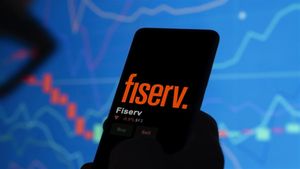
The global economy is currently navigating a tumultuous sea of uncertainty, with a pervasive sense of precariousness defining market sentiment in late 2025. Persistent inflation, escalating geopolitical tensions, and a complex interest rate environment are collectively pushing investors towards safe havens and sustainable investment practices. This profound shift is driving a re-evaluation of traditional financial paradigms and fostering innovative solutions, exemplified by IO DeFi's timely launch of 'Stability 2.0' – an initiative aimed at delivering smarter, safer, and more sustainable passive income within the decentralized finance (DeFi) space.
This intensified demand for stability and sustainable investing carries immediate implications for capital flows, market re-evaluation, and corporate governance. Investors are increasingly scrutinizing long-held assumptions, leading to rapid shifts in sentiment and a heightened focus on tangible environmental actions from companies. The financial world is not just seeking returns; it's seeking resilience, transparency, and a positive impact, signaling a significant evolution in investment philosophy.
IO DeFi's 'Stability 2.0': A Beacon for Sustainable Stability
In response to the market's yearning for steadfastness, London-based decentralized finance pioneer IO DeFi officially launched its "Stability 2.0" initiative today, November 13, 2025. This next-generation ecosystem is meticulously designed to offer reliable, transparent, and accessible digital wealth solutions, directly addressing the economic uncertainties plaguing global markets.
'Stability 2.0' introduces several key features to achieve its ambitious objectives. The platform offers new yield contracts with varying durations and investment amounts, providing users with diverse options for generating passive income. A strong emphasis is placed on enhanced transparency, with all transaction and profit records being traceable through a decentralized custody model where user funds remain independently controllable. Security is paramount, with the integration of a "WorldSecure world-class financial protection system," blockchain encryption verification, and a 24/7 DOSS security defense system. Crucially, IO DeFi actively invests in and leverages renewable energy sources like wind, hydro, and solar power, ensuring that its AI-driven, eco-powered contracts provide stable and sustainable returns that align financial growth with real-world impact. The initiative is further supported by an intuitive mobile application and round-the-clock customer service, making stable investing accessible to over 3 million users across 180 countries, including US investors. Senior financial advisors like Michael Lawson of Harborview Capital Management and former portfolio strategist Linda W. Carter have endorsed IO DeFi's yield model, highlighting its appeal to conservative investors seeking both stability and transparency.
Winners and Losers in the Stability Shift
The profound shift towards stability and sustainable investing creates clear winners and losers across both traditional finance (TradFi) and the burgeoning crypto/DeFi sectors. Companies demonstrating robust ESG practices and offering stable, transparent products are poised for significant gains, while those clinging to unsustainable models or lacking transparency face increasing headwinds.
In traditional finance, asset management firms with robust ESG offerings like BlackRock (NYSE: BLK) and Fidelity are well-positioned to attract more capital by expanding their sustainable fund portfolios, green bonds, and impact investing products. Renewable energy and green technology companies such as Xylem (NYSE: XYL) (water-filtration equipment) and Owens Corning (NYSE: OC) (sustainable building materials) are set to benefit from increased investor interest and favorable policies. Conversely, companies in high-emission or unsustainable industries without clear transition plans, or those with poor ESG ratings, risk divestment, higher capital costs, and reputational damage. ESG data and rating providers like MSCI (NYSE: MSCI) and Morningstar (NASDAQ: MORN) will also see increased demand for their services as investors seek reliable metrics.
Within the crypto/DeFi space, energy-efficient blockchains and protocols utilizing Proof-of-Stake (PoS) consensus mechanisms, such as Ethereum (ETH-USD), are likely to thrive as environmental concerns push investors away from high-energy Proof-of-Work systems. Stablecoin projects with strong, transparent reserves and robust auditing will be favored, as will DeFi protocols that prioritize security, risk management, and user experience, much like IO DeFi's 'Stability 2.0'. Real-world asset (RWA) tokenization projects, which bridge traditional assets to the blockchain for more predictable returns, also stand to gain. Conversely, highly speculative DeFi projects lacking audits, prone to security exploits, or those with high energy consumption and no clear green initiatives (like some older PoW cryptocurrencies without significant shifts towards sustainable practices) will likely lose investor trust and face regulatory pressure. Projects that fail to adapt to evolving regulatory compliance will also struggle to attract institutional capital.
A Wider Significance: Maturing Markets and Regulatory Scrutiny
The growing demand for stability and sustainable investing, exemplified by IO DeFi's 'Stability 2.0', signifies a pivotal maturation of financial markets. This trend is deeply embedded within broader industry shifts, including the mainstream adoption of ESG, an increasingly complex regulatory landscape, and growing institutional interest in DeFi.
ESG has transitioned from a niche concept to a fundamental driver of investment decisions, with assets under management in ESG-focused funds soaring. This is driven by regulatory pressures, particularly in Europe (e.g., EU SFDR, EU Taxonomy) and the UK (SDR), which aim to enhance transparency and combat greenwashing. The US SEC has also proposed rules to boost ESG disclosures. Simultaneously, traditional financial institutions are showing increasing interest in DeFi for its efficiency and new market opportunities, though this interest is tempered by concerns about security and regulatory compatibility. Initiatives like 'Stability 2.0' directly address these concerns by offering secure, transparent, and sustainable pathways into DeFi.
The ripple effects are substantial: traditional banks face a "compel or compete" scenario as liquidity and market share could shift to blockchain-based solutions. Other DeFi projects that do not prioritize stability, robust security, and user experience may struggle to compete. This environment also fosters new partnerships with technology providers for blockchain infrastructure, AI-driven ESG analytics, cybersecurity firms, and compliance solutions. From a regulatory perspective, stablecoins are under intense scrutiny due to their potential systemic impact, with a global push for clearer frameworks for DeFi that balance innovation with financial stability and consumer protection. Historically, this quest for stability and the regulatory response to innovation outstripping oversight mirrors periods like the creation of the Federal Reserve after the 1907 banking panic or the reforms following the 2008 Global Financial Crisis, indicating a natural evolution towards structured oversight as new financial paradigms emerge.
The Road Ahead: Navigating Opportunities and Challenges
Looking ahead, the financial markets face a dynamic future shaped by persistent global economic uncertainty and the unwavering demand for stability and sustainable investing. In the short term, market volatility will likely continue, prompting investors to rotate capital into defensive sectors with steady earnings and clearer visibility. Long-term, however, the integration of sustainability and innovative solutions like IO DeFi's 'Stability 2.0' could foster greater market resilience.
Companies must strategically pivot by embedding sustainability into their core operations, developing robust business cases that link ESG performance to financial outcomes, and enhancing disclosure and transparency. Investors, in turn, need to adopt a long-term perspective, employ advanced risk management techniques, and deepen their research into sustainability data. Market opportunities will proliferate in sustainable finance, new thematic investments (e.g., nature and biodiversity, transition finance), and the clean energy transition, especially as AI's energy demands drive renewable deployment. The "DeFi 2.0" movement, with its focus on robust, sustainable ecosystems, will also open new avenues for passive income and improved risk management. Challenges include ongoing geopolitical tensions, potential ESG backlash, inconsistencies in ESG data, and the inherent risks of DeFi, such as liquidity mismatches and reliance on external oracles.
Potential scenarios range from "Sustainable Resilience," where genuine ESG integration and innovative DeFi solutions lead to a more resilient and impactful financial system, to "Fragmented Adaptation," where uneven responses create regional disparities. A more pessimistic "Short-Term Volatility Dominance" scenario could see sustainability sidelined amidst persistent crises.
A New Era of Responsible Finance
The current global economic uncertainty has undeniably catalyzed a fundamental shift in investor priorities, placing stability and sustainable impact at the forefront. IO DeFi's 'Stability 2.0' stands as a timely example of how the decentralized finance sector is evolving to meet this demand, offering transparent, secure, and eco-conscious investment opportunities. This move reflects a broader industry imperative to reconcile financial growth with long-term resilience and ethical stewardship.
Moving forward, investors should closely watch regulatory developments in both traditional finance and DeFi, particularly concerning stablecoins and ESG reporting standards. The ability of companies to genuinely integrate sustainability into their core strategies, rather than merely greenwashing, will be critical. Furthermore, the continued innovation within DeFi, focusing on security, transparency, and real-world utility, will determine its ultimate role in a more stable and sustainable global financial ecosystem. The market is clearly moving towards a new era of responsible finance, and those who adapt strategically will be best positioned for success.
This content is intended for informational purposes only and is not financial advice





